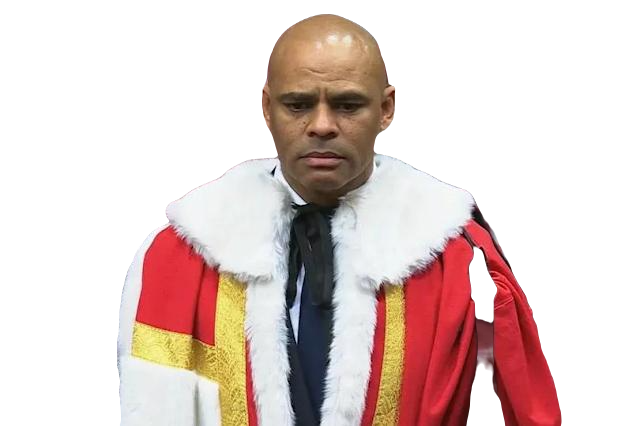The Shadow of Ambition: Power, Race, and the Rees Legacy in Bristol.
Marvin Rees's Bristol: A Case Study in Power, Ambition, and the Spectre of Ego.
It’s a familiar feeling: that twinge of injustice when we see those of questionable character seemingly rewarded with power and success. The Stoic philosopher Epictetus offered a different perspective: those who trade virtue for worldly gain have already paid a far greater price – they must live with themselves.
This brings us to the tenure of Bristol's former elected Mayor, Marvin Rees. His background in relatively deprived areas, coupled with his academic achievements, including Harvard (via Yale and Bloomberg Harvard), and his rise to become Bristol's first elected Mayor of Black African heritage, highlight his ambition.
Observing this trajectory invites consideration of the interplay between this drive and the potential for ego. Public discourse has presented a multifaceted picture. Supporters cite achievements in housing and investment, alongside his OBE and honorary degrees. However, scrutiny has focused on his decisions and post-mayoral employment.
The factor of race adds complexity. As Bristol's first Black African heritage Mayor, his leadership was inevitably viewed through this lens. For ambitious politicians from underrepresented groups, the desire to succeed and the awareness of potential racial biases can create immense pressure. The fear of being perceived as failing and having it attributed to race could theoretically influence the dynamics around them. This isn't to suggest all actions are driven by this, but it's a crucial context.
Marvin Rees's story serves as a case study. His drive and achievements are juxtaposed with scrutiny. Reflecting on his time invites consideration of not just outcomes, but the principles and character shaping his leadership. The enduring question is the line between ambition and ego, and the true measure of public service.
Again, connecting this back to Stoicism complicates our understanding of "success." Is it solely about power and accolades, or does the integrity of one's character hold greater weight? Epictetus suggests inner virtue carries a significance far beyond external rewards.
The story of Marvin Rees invites us to consider not just individual drive but also the broader societal context, including the nuanced influence of race. A comprehensive understanding requires acknowledging the interplay of personal ambition, political manoeuvring, and the significant role race can play in shaping perceptions and legacy. How do we disentangle the individual from the systemic in our assessments?
Furthermore, a psychological perspective suggests that a seemingly ruthless drive and large ego might mask underlying insecurity, with ambition serving as a constant need for external validation. This could explain the surprise surrounding his election to the House of Lords, given the contrast between his assertive style and the collaborative expectations of the Lords. This raises questions about whether the pursuit of power stems from inherent confidence or a need to prove oneself, impacting decision-making and legacy.
The case of Marvin Rees becomes a study in the interplay of ambition, insecurity, and power. It compels us to consider the possibility that outward assurance might mask a deeper need for validation, and whether the pursuit of office is always about service or sometimes about personal psychological dynamics.
Reflecting on his career and elevation to the Lords extends beyond political analysis into human psychology, forcing us to consider hidden motivations and the true costs of a relentless pursuit of power.
Adding to the complexities is the evolving structure of Bristol City Council, with a trend towards outsourcing services, shifting the council's role to monitoring. Marvin Rees's administration accelerated this, raising concerns about reduced councillor oversight and transparency.
Scrutiny has also focused on potential conflicts of interest regarding his post-mayoral employment with Ameresco (awarded a £1.2 billion contract), his association with Cambridge Management Consulting (partnered by former Deputy Mayor Craig Cheney), the transfer of £1.35 million worth of council land to Empire Fighting Chance without declared interest, and his involvement with the Mayors Migration Council, University of Pennsylvania, and the Overseas Development Institute. These revelations intensify debates about transparency and accountability.
The shift towards outsourcing and conflict of interest concerns raises fundamental questions about local governance in Bristol, underscoring the need for robust ethical guidelines.
As Bristol navigates this landscape, Marvin Rees's legacy serves as a critical case study, highlighting the interplay of ambition, power, and the changing nature of local government. It compels us to consider both individual actions and systemic changes reshaping the relationship between officials, providers, and citizens.
The dynamic of race further complicates discussions surrounding power and leadership, particularly for individuals from underrepresented groups like Marvin Rees, Bristol's first Black African heritage Mayor. In such contexts, a palpable tension can arise where individuals might hesitate to voice criticisms or counterarguments for fear of being unfairly labelled as 'racist'. This apprehension can stifle open and honest debate, potentially hindering necessary scrutiny of policies and decisions.
It is also important to note that the demographic of Bristol itself is more diverse than the national average, which also creates unique political dynamics. While the percentage of Black, Asian, and minority ethnic (BAME) individuals in positions of power has increased, it still does not proportionally reflect the UK population. For example, according to the 2021 census, approximately 18% of the population of England and Wales identify as belonging to a minority ethnic group. However, the percentage of those groups within positions of political power, while increasing, is still below this percentage.
This underrepresentation can create added pressure for those who do reach positions of power. Statistics from the UK Office for National Statistics (ONS) consistently show that individuals from certain racial and ethnic minority groups are more likely to experience poverty and socioeconomic disadvantage. This disparity can influence ambition and the perception of success. Data regarding the trust that the public has in local government can vary wildly depending on the specific area and the time the data was collected.
In conclusion, the story of Marvin Rees and Bristol City Council is a cautionary tale about the need for constant vigilance regarding the actions of representatives and the systems of government they create.



